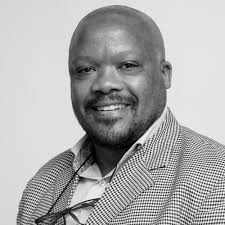


 |
| Contact Info: Rhodes University Trust USA Donovan Neale-May |
Get active in South African Business Link to Experts

ObituariesNEIL HARVEY
Harvey, Neil Mowbray 2/16/1941 - 1/9/2022 Grand Rapids Neil Mowbray Harvey, 80, of Grand Rapids, Mich., died peacefully in his sleep at home on January 9, 2022. Born in Umtata, South Africa, Neil's life and work took him around the world. He received his MBA from Indiana University ('66) and his PhD in Commerce from Rhodes University ('07) in Grahamstown, South Africa. After retiring from a career that included South African Breweries, South African Shoe Corp., Wolverine Worldwide, and Anglo American, Neil authored a book, became a professor of turnaround management at Rhodes University and Wits Business School, and founded an investment management company. Neil was an avid consumer of business and history books, global current affairs and periodicals, cricket, and all things Bob Dylan. Neil is remembered with love by his wife of 24 years, Terry Harvey; his children, Sue Harvey Brown (Rick) and Craig Harvey and his first wife of 27 years, Ena Brimer Harvey; grandchildren, Reese and Gavin Brown; brother, Malcolm Mowbray Harvey (Val) of Durban, South Africa; and extended family Eamon Ross, Jane Milne (Philip), Sasha Milne, and James Milne of Buckinghamshire, England. Kerry Phillip O’Sullivan Swift
Mr Swift, known for his gentle, adventurous, and kind soul, is a former School of Journalism and Media Studies lecturer and former Director for Advancement at the University. He obtained his Bachelor of Journalism and Media Studies degree from the University in 1972. He was among the first group of journalism graduates of the school. In 2022, he was one of the deserving 50 recipients of the JMS50 awards handed out in celebration of the school's 50th anniversary. After completing his degree, Mr Swift joined the Sunday Times and was the last journalist to travel through the Mozambique war zone before the coup in Portugal, which led to his book Mozambique and the Future. A few years later, he joined Drum Magazine. As a Rotary Journalism Fellow, he obtained his Master of Arts degree from the University of York. For ten years, Mr Swift jointly ran a corporate publishing house, the Freelance Editors, in Johannesburg, which won numerous awards. In 1990, he returned to Rhodes University as a Senior Lecturer in the School of Journalism and Media Studies, where he launched and edited the Rhodes Journalism Review. Kerry left Rhodes University to join Churchill-Murray Publishing, first in Cape Town and then in London, as the Publishing Director, producing a wide range of corporate publications, including the Leadership Magazine. A few years later, he ran the Times Media Journalism School and wrote for Fleetwatch Magazine, which won the Siemens and overall Transnet journalism awards. Kerry was also a commissioning judge for the Siemens All-Africa Journalism Awards for ten years and Chairman of the Orchestra Company in Johannesburg. With the help of two colleagues, he launched Fox Publishing in Johannesburg and Cape Town before selling his shares and joining Core Holdings as Publishing Director of PC Magazine and Interactive Week. Kerry returned to Rhodes University for the second time between 2001 and 2007 as Director of Development and Institutional Advancement. In 2004, he spearheaded the University Centenary Campaign, which was instrumental in raising funds to extend the University Main Library. He left Rhodes University and joined the University of Johannesburg as Executive Director of Institutional Advancement. The chair of the Rhodes University USA Trust and close friend, Mr Donovan Neale-May, described Mr Swift as a socially committed and ethical man, a noted journalist, PR practitioner and champion of tertiary education in South Africa. Closer to retirement, Mr Swift teamed up with Mr Neale-May and served as Country Director of the Sable Network. On retirement, Kerry consulted various universities before writing his memoir, Another Country. “We have lost a great person and someone who contributed to Rhodes in so many ways. I mourn him as a former student and mentee,” said Tanya Accone, senior adviser on innovation at the United Nations Children’s Fund and former student at the School of Journalism and Media Studies. Mr Swift leaves behind his wife Cheryl, his daughters Jacqui and Kate, his grandsons Nicholas and Jonathan and granddaughters Sophia and Noelle. |
|
 It is with both gratitude and upliftment that we celebrate the life and times of Neil M. Harvey, a vaunted Old Rhodian from Umtata and PhD. graduate, who passed away at his home in Michigan in 2022. His estate has just made a generous donation to the Rhodes University Trust, thanks to the efforts of his daughter Sue Harvey Brown. The funds will be transferred to his alma mater for scholarships and special programs.
It is with both gratitude and upliftment that we celebrate the life and times of Neil M. Harvey, a vaunted Old Rhodian from Umtata and PhD. graduate, who passed away at his home in Michigan in 2022. His estate has just made a generous donation to the Rhodes University Trust, thanks to the efforts of his daughter Sue Harvey Brown. The funds will be transferred to his alma mater for scholarships and special programs.  Rhodes University is mourning the passing of Mr Kerry Phillip O’Sullivan Swift, aged 74.
Rhodes University is mourning the passing of Mr Kerry Phillip O’Sullivan Swift, aged 74.
